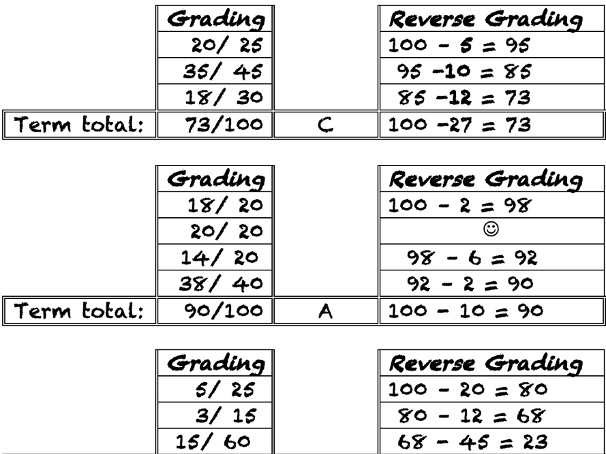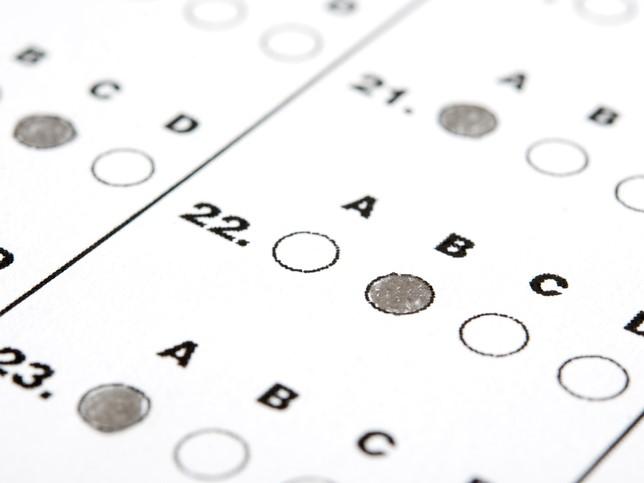
How to negotiate the politics of mark agreement between tutors

You may also like
I suspect that many students would be surprised to learn that their grades are open to variability and negotiation. It still sticks in my craw that a much older, more experienced and senior colleague once cajoled and manoeuvred me – as a recent arrival from practice – into elevating an undergraduate’s dissertation mark, which had a knock-on effect of not only a higher dissertation classification but a higher overall degree award (up from 2:2 to 2:1).
Academia needs to discuss the possibility of mark negotiations among academics not just emerging from alignment with assignment criteria but being subject to peripheral or under-the-radar factors such as age, gender and seniority. I remember, some years ago, a head of department getting the entire teaching staff to blind mark an anonymised piece of student work, using accompanying assessment criteria. The mark range was substantial, from fails to marks in the 60 per cents. Certainly in the social sciences – which I have worked in and am familiar with – this points to a need for greater tutor humility, attention to assessment criteria and quality control.
- Tactics to ensure students engage with and learn from feedback
- I’m a Columbia student, and I don’t want my grade inflated
- Three immediate changes academics can make to close awarding gaps
Which brings us to second marking and moderation. For a start, there’s confusion over which is what. On the courses I teach, we second mark each assignment, with first and second markers then agreeing the definitive mark. Moderation, on the other hand, is a lighter-touch, more limited review of first-marker marks by a colleague, in which the overall grades (2:2, 2:1, etc) are looked at, rather than exact marks. Moderation determines whether or not a sample of assignments are allocated to the correct band – third class (40-49); 2:2 (50-59); 2:1 (60-69 per cent). It is a survival mechanism for hard-pressed staff marking assignments linked to modules taken by large numbers of students (say, more than 100).
It should be said that, in my experience over 30 years of teaching and external examining, most mark negotiations between most academics are evidence-based, neutral, businesslike and amicable procedures. Commonly, markers split the difference – for example, if marker one says an essay is worth 68 per cent and marker two gives it 62 per cent, they may well agree on 65 per cent. But in a minority of cases, I hazard that there are murkier, opaque and doubtful forces at work.
Occasionally, it can feel as though the first marker (usually the student’s adviser) takes a poor mark from a colleague as a personal slight on their own professionalism and capability. Dissertations offer a high-stakes example, in the sense that many final-year undergraduates are required to research and present an extended project (of, say, 6,000 to 10,000 words). Dissertations are still judged as a mark of “graduateness” – and a fitting culmination to three or four years of study.
Dissertations, and similar, are normally blind double marked – by the student’s adviser and one other who should have a notion of the topic under consideration. However, sometimes, markers may feel under more pressure than usual because they can find themselves (second) marking work that they are not a specialist in; this can happen when there are high student numbers and relatively few staff. There can also be a temptation for a first marker (who was also supervisor) to be swayed by effort – as seen over an academic year – as opposed to quality of output.
I do find disputes here more understandable, given that student and adviser may well have interacted far more intensively with each other during advisory meetings, plus email exchanges, than would be common with many other types of assignment. The adviser can become heavily invested in this “joint” dissertation work and the journey undertaken.
I also have a hunch – or a hypothesis, if you like – that unreasonable behaviour linked to mark agreement with another academic is connected to gender (man towards woman), age (older and more experienced towards younger and less so) and seniority (professor towards lecturer). The common threads here are perceived (or actual) power and confidence versus a relative lack thereof. In such cases, who is marking becomes more important than what is being marked – and the process adversarial as opposed to collaborative.
The fact that hidden and extraneous factors may influence mark negotiation by staff is important for teaching academics to recognise, so they can focus on assessment criteria as the basis for an agreed mark and feedback – and, in so doing, enable students to be clear and confident about what they need to deliver in submissions. It is also crucial that a spirit of collegiality wins through rather than allowing the process to descend into a series of power plays.
So, what advice can I offer?
- See it as our duty and job to uphold fairness, consistency and standards in marking. There’s too much room for variability and not enough consistency. In particular, we need to stick like glue to the marking criteria.
- Remember that however uncomfortable we may feel, it is the student’s work that is under consideration (not the academic’s support).
- In following the assignment criteria, we need to mark assignments against what we have asked them to do, not against secret or occluded criteria that were not made explicit to students.
- Don’t go in as the “great I am”, whose reputation is under scrutiny in the marking procedure. Rather, recognise that we all go through phases of imposter syndrome and (naturally) worry that we may not be serving students. I’m convinced that a dose of humility and an overarching aim to do right by the student provide valuable compass bearings for marking and mark negotiation.
- Be absolutely clear what our role is – first marker, second marker, moderator – and act accordingly. Be rigorous, potentially assertive and amicable. This is not a fencing bout but rather a conversation using evidence to support a view.
- Make sure that your mark aligns with the in-text and overall feedback to the student. For example: “An outstanding piece of work, worthy of publication in an academic journal: 75 per cent.” So, where and why did 25 per cent vanish to? Likewise: “Fails to answer the brief and little use of supporting literature: 36 per cent.” If it’s so dire, then make sure the mark reflects this (maybe 20 per cent).
- Mark the work, not your perception of a colleague. In the same way that we’re exhorted to mark the student’s work in front of us and not the student (based on knowledge of how good or bad their reputation). It’s also simply practising professionalism. Oh, and don’t take out an argument with someone, or difficult personal circumstances, on the student’s work – or on colleagues!
James Derounian lectures on community governance. He is a national teaching fellow and a visiting professor at the University of Bolton, UK.
If you found this interesting and want advice and insight from academics and university staff delivered direct to your inbox each week, sign up for the THE Campus newsletter.


